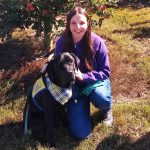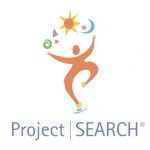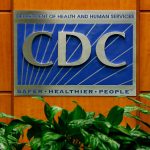Students and staff in CDS’s Career and Life Studies Certificate (CLSC) and Spectrum Scholars programs are demonstrating their flexibility and resilience as they adapt to digital learning and socializing. Students are continuing to participate in coaching and mentoring sessions, attend clubs and hone self-advocacy skills. Staff are finding creative ways to move instruction online, though some offerings, such as CLSC internships, are proving hard to replicate.
The U.S. Education Department’s Rehabilitation Services Administration released guidance on the role of vocational rehabilitation agencies during the pandemic. It recommended providing as many services as possible remotely, including job coaching and employment stability assessments. It also reaffirmed the expectation that agencies “make good faith and reasonable efforts to provide pre-employment transition services to each student with a disability.”
A procession of cars bearing Delaware Secretary of Transportation Jennifer Cohan, DelDOT employees, Caesar Rodney School District staff and others will drive past the houses of 10 high school students with disabilities who worked at the department during the school year. The car parade, held in lieu of an in-person graduation ceremony, recognizes the students’ successful completion of a program coordinated by Project SEARCH, a transition program that offers real-life job experience, training in employability and independent living skills.
A developmental pediatrician writes to reassure parents of children with disabilities that any stalled or reversed progress that has come about due to several months away from school services will be methodically addressed when schools inevitably reopen. He says that, while this is far from ideal, parents may make situations at home more tense and emotionally volatile by constantly stressing over issues outside their control. He recommends maintaining close contact with teachers and specialists, creating a daily routine and spending instructional time triaging behaviors or emotional concerns that are most disruptive.
The Centers for Disease Control and Prevention (CDC) released its first-ever study estimating the number of U.S. adults who are on the autism spectrum: approximately 5.4 million, or 2.2 percent of the country’s adult population. Autism experts say this is a step toward acknowledging and addressing the needs of the overlooked population of people with autism older than 18.





